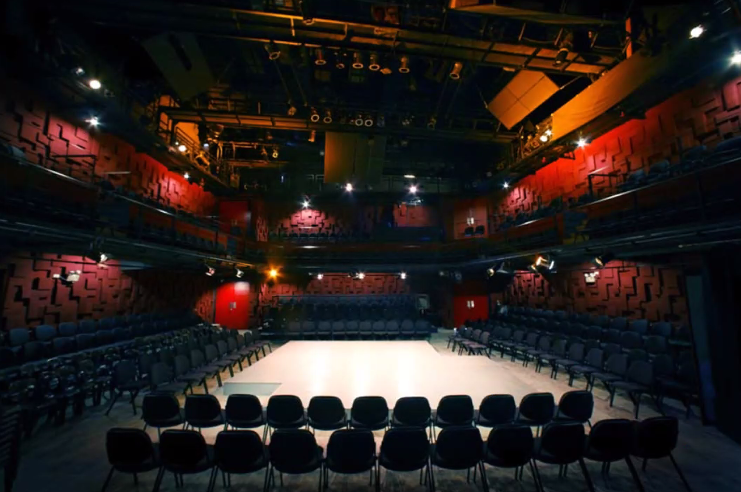Q4 | Arts
Elements of Art in Theatre
Sound & Music — Works hand in hand with the other elements of the performance to help captivate the audience and bring them into another realm.
Establishes the time and location.
Reflect the cultural context.
Sets the mood and atmosphere.
Serves as exposition.
Gesture, Movement, and Dance — One of the most important tool of expression in any actor’s toolkit is their physicality, the use of their bodies in movement.
Sometimes, you can tell what a character is thinking without them speaking a word.
Costume — What the actors wear when performing. Costume can denote character, historical era, and the style of the production. Costume is often used to help communicate a character‘s personality.
Mask — Hides part of the face. Most modern western productions do not wear masks, but some genres still do.
In Greek theatre, the actors all wore exaggerated masks to communicate character.
Makeup — Bright stage lighting can wash out facial features and make performers appear pale, so make-up is used to enhance features and make sure that the audience can see the actor’s facial expressions.
Accessories — Anything other than clothing that is worn or carries including wigs, hats, footwear, jewelry, and similar items.
Spectacle — In theater (and as defined by Aristotle), this includes all the visual aspects of a production, including costumes, make-up, scenery, and special effects.
Philippine Theater Groups
Philippine Educational Theater Association (PETA) — Philippine Theater engaged in the development of people and society.
The social conditions and political climate during the Martial Law sharpened the people-based theater aesthetics of PETA. It inspired the company to use the power of theater as a means of producing plays for empowerment and development, especially of the most disadvantaged sectors of society/those in the margins.
Cecile Guidote-Alvarez — Founder of PETA, who was forced to go on political exile because of Martial Law in 1972, PETA’s new breed of artist-teacher-leaders continued to steer the company towards a People’s Theater committed to social change.
April 7, 1967

Works of Philippine Educational Theater Association (PETA):
Rak of Aegis
William (Shakespeare)
Batang Rizal
A Game of Trolls
Tanghalang Pilipino (TP) — Resident drama company of the CCP.
Challenges each Filipino to remain committed to his moral convictions, to uphold what is right and just, and therefore fulfill a social responsibility shared by all.
Envisions raising Philippine theatre to heights of professional and artistic excellence, dedicated to developing and training actors, playwrights and designers with special emphasis in the production of original Filipino plays.
Repertory Philippines — Believes in the essential power of Theater to enlighten & uplift Philippine Culture & Society.
Envisions a time when the full spectrum of the theater arts becomes a pervasive part of our landscape.
Professional English-speaking theatre
Works of Repertory Philippines:
Rapunzel
The Quest for Adarna
Noli me Tangere
Sound of Music
Trumpets, Inc — Non-stock, non-profit theater company dedicated to using the performing arts and all media for sharing the wonderful life that can be found in Jesus Christ
Works of Trumpets:
Joseph the Dreamer
First Name
Fables and Parables
NOAH
Bluebird of Happiness